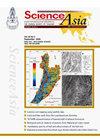共生菌群:一类有效的免疫调节剂
IF 0.6
4区 综合性期刊
Q3 MULTIDISCIPLINARY SCIENCES
引用次数: 1
摘要
微生物群以共生共生体的形式存在于人类、家畜和野生动物、鸟类、鱼类、爬行动物、昆虫等体内。DNA测序和宏基因组平台已经破译了微生物群落(细菌、真菌、病毒、原生动物和其他真核生物物种)在宿主生理、代谢和免疫系统的生存和调节中所起的复杂作用。微生物种群的任何变化或与宿主的共生联盟的破坏都可能最终导致不同种类的病理发展。认识到微生物组在人类和家畜的健康和疾病中发挥的巨大作用,研究人员找到了调节这些常驻微生物组以改善健康和疾病管理的方法。从理论上讲,有几种方法可用于控制常驻微生物组的组成和功能能力,这可能导致人类和牲畜健康的改善。尽管研究显示了微生物组的治疗潜力,但在临床环境中实际实施这些策略时存在相当大的挑战。本文综述了微生物组与宿主的共生关系以及通过调控微生物组来调节宿主免疫应答的策略。论文还强调了如何克服现有的障碍,成功实施微生物组操作技术。在这个COVID-19时代,有必要分析驻留微生物组在COVID-19严重程度中的作用,这可能是通过免疫调节发生的。本文章由计算机程序翻译,如有差异,请以英文原文为准。
Symbiotic microbiota: A class of potent immunomodulators
Microbiome is known to exist as symbiotic commensals in humans, domestic and wild animals, birds, fishes, reptiles, insects etc. DNA sequencing and metagenomic platforms have deciphered the complex role played by communities of microbiota (bacteria, fungi, viruses, protozoa and other eukaryotic species) in survival and regulation of host physiology, metabolism and regulation of host immune system. Any alteration in the microbial population or breach in the symbiotic alliance with the host may ultimately lead to development of different kinds of pathologies. Realization of the enormous role played by the microbiome in health and diseases of human and domestic livestock led researchers to find ways to modulate these resident microbiomes for improvement in health and management of diseases. Theoretically there are several ways that can be employed for manipulating the composition and functional capacity of the resident microbiome, which may lead to improvements in human and livestock health. Though studies have shown therapeutic potential of the microbiome, considerable challenges exist in the actual implementation of these strategies in clinical settings. This review discusses the symbiotic relationship between microbiome and host and strategies to modulate host immune responses by manipulating microbiome profile. Paper also highlights how to overcome existing obstacles for successful implementation of microbiome manipulation techniques. In this era of COVID-19, it would be worth analysing the role of resident microbiome in the magnitude of COVID-19 severity which may have occurred through immunomodulation.
求助全文
通过发布文献求助,成功后即可免费获取论文全文。
去求助
来源期刊

Scienceasia
MULTIDISCIPLINARY SCIENCES-
CiteScore
1.70
自引率
33.30%
发文量
102
审稿时长
1 months
期刊介绍:
ScienceAsia is a multidisciplinary journal publishing papers of high quality bimonthly, in printed and electronic versions, by the Science Society of Thailand under Royal Patronage and the National Research Council of Thailand. The journal publishes original research papers that provide novel findings and important contribution to broad area in science and mathematics. Areas covered include Biological Sciences and Biotechnology, Chemistry and Material Sciences, Environmental and Applied Sciences, and Mathematics and Physical Sciences. Manuscripts may report scientifically useful data, observations or model predictions, and/or provide a new scientific concept or a new explanation of published results. Submissions of materials of current scientific interest are highly welcome, provided that there is sufficient scientific merit. The journal will not accept manuscripts which have been published or are being considered for publication elsewhere, nor should manuscripts being considered by ScienceAsia be submitted to other journals. Submitted manuscripts must conform to the guidelines given in the Instructions for Authors
 求助内容:
求助内容: 应助结果提醒方式:
应助结果提醒方式:


